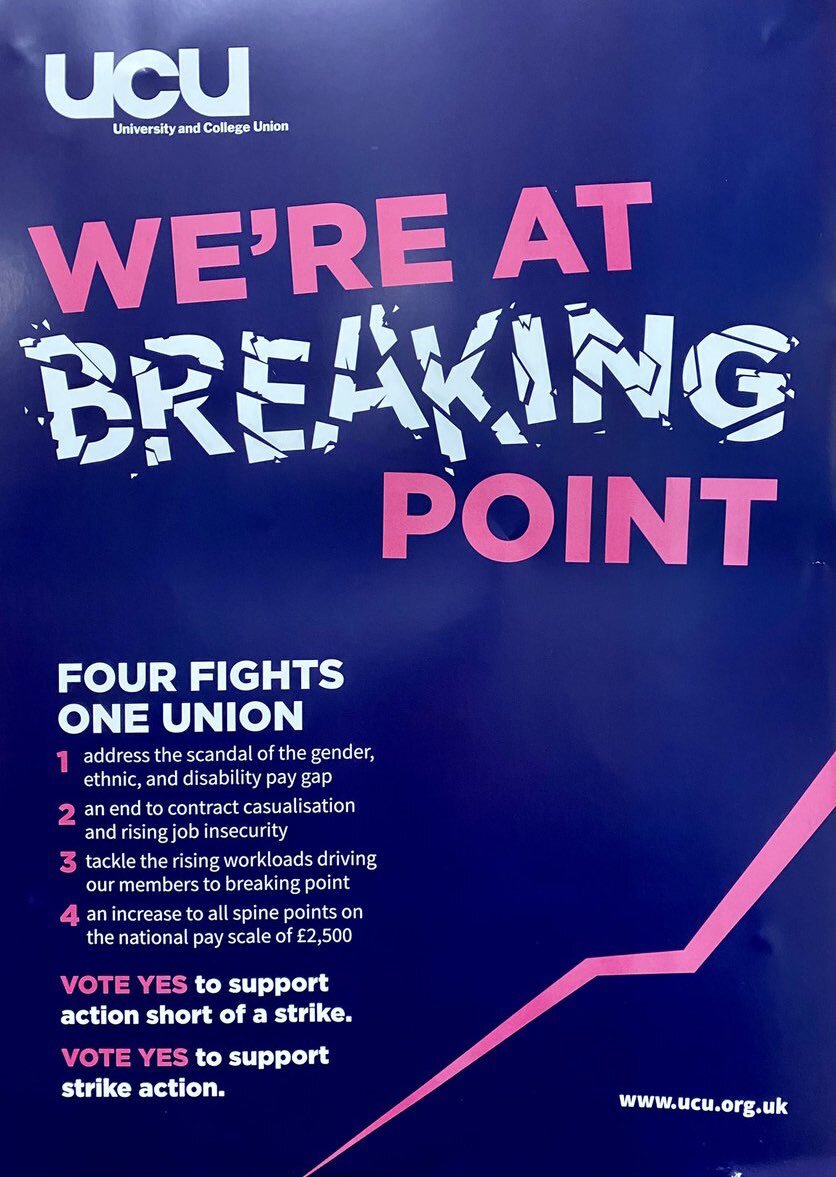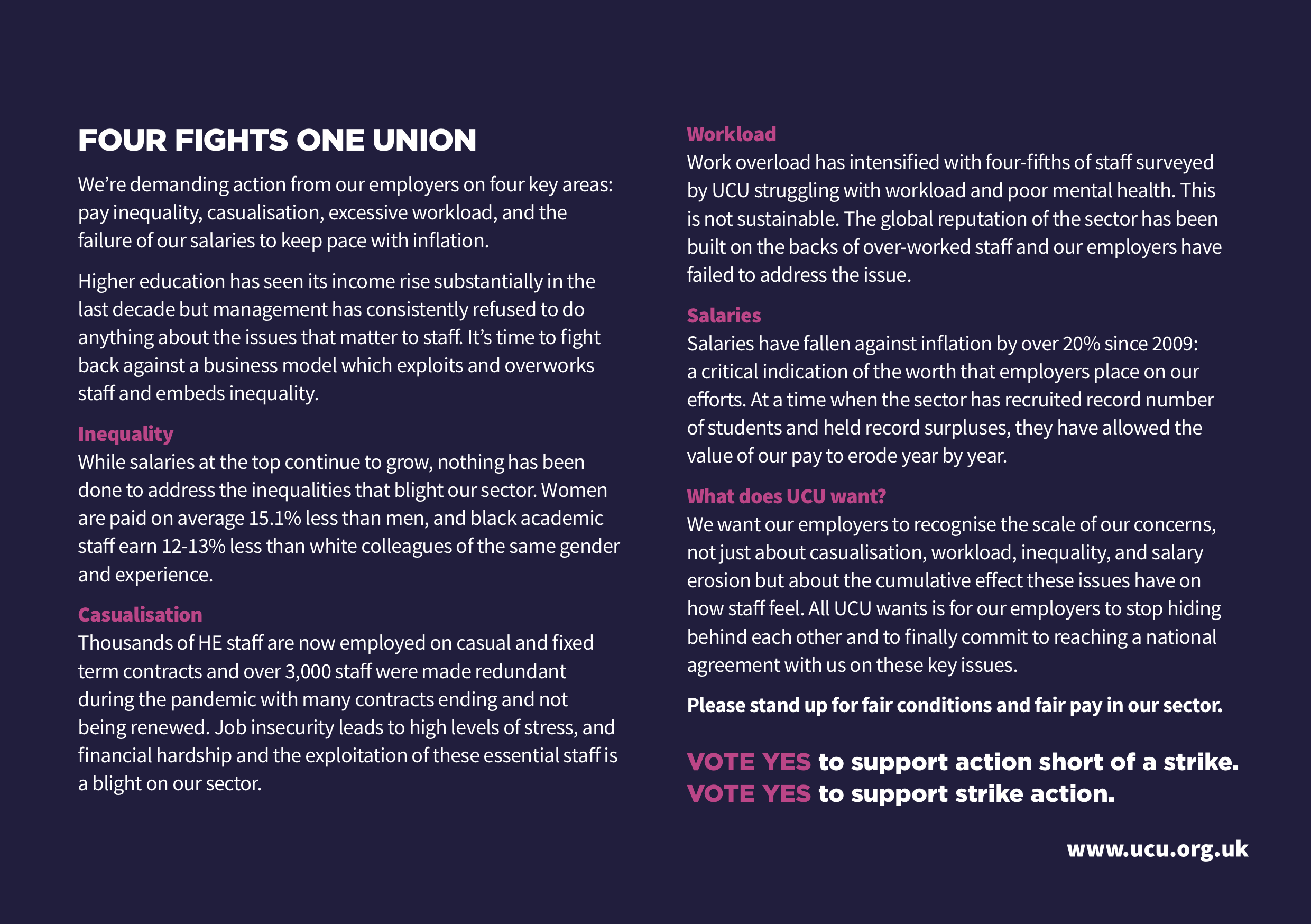Pay & Equality
We are demanding:
Address the scandal of the pay gaps:
Disability – 8.7%
Women 15.1%
BAME 12-13%
Pay awards at, or above the rate of inflation: pay has fallen by over 20% in real terms since 2009.
At the same time, pay for Vice Chancellors and senior managers has rocketed.
Workload
UCU demands that universities tackle the rising workloads driving our members to breaking point:
academic staff working 50 hours weeks
staff in both the higher education and further education sectors are working an average of more than two days unpaid every week
workload is unmanageable and unsustainable for the majority of academic staff and lecturers
staff are taking on more responsibility and administration
student expectations have increased
professional and career development is suffering as a result of increasing workload pressures.
Causalisation
Casualisation is rife within higher education: 70% of researchers in HE are employed on fixed-term contracts, while many more have contracts which are dependent on funding. A whopping 37,000 teaching staff are employed on fixed-term contracts, and a further 71,000 teachers are employed as 'atypical academics'.
The use of casual contracts erodes the rights, protections and security that should be afforded to all employees. Casualisation also makes it much more difficult for staff to challenge employers about key workplace issues, because staff are often reluctant to 'rock the boat' and risk their employment being terminated.
Finally, casualisation has real material consequences for staff - UCU's research showed that 42% of staff on casual contracts have struggled to pay household bills, while many others struggle to make long-term financial commitments like buying a house.
Read more about UCU Edinburgh’s work against causalisation at https://www.ucuedinburgh.org.uk/anticasualisation and more on UCU’s national campaign to stamp out casualised contracts at https://ucu.org.uk/stampout
·
Rachel Chung, a guaranteed hours tutor and PhD student in the School of Literatures, Languages, and Cultures, talks about the links between casualisation, pay, and equalities, as well as their reasons for voting yes to strike action on the Four Fights ballot






